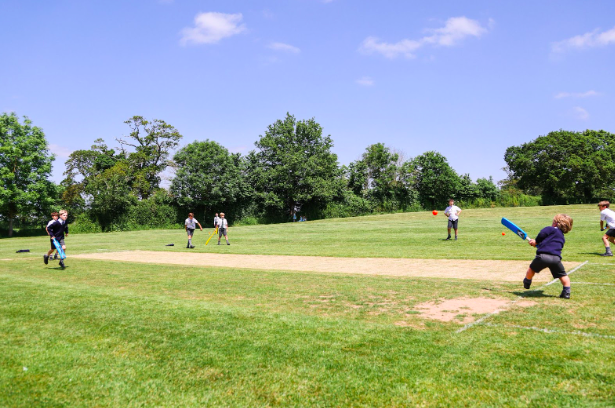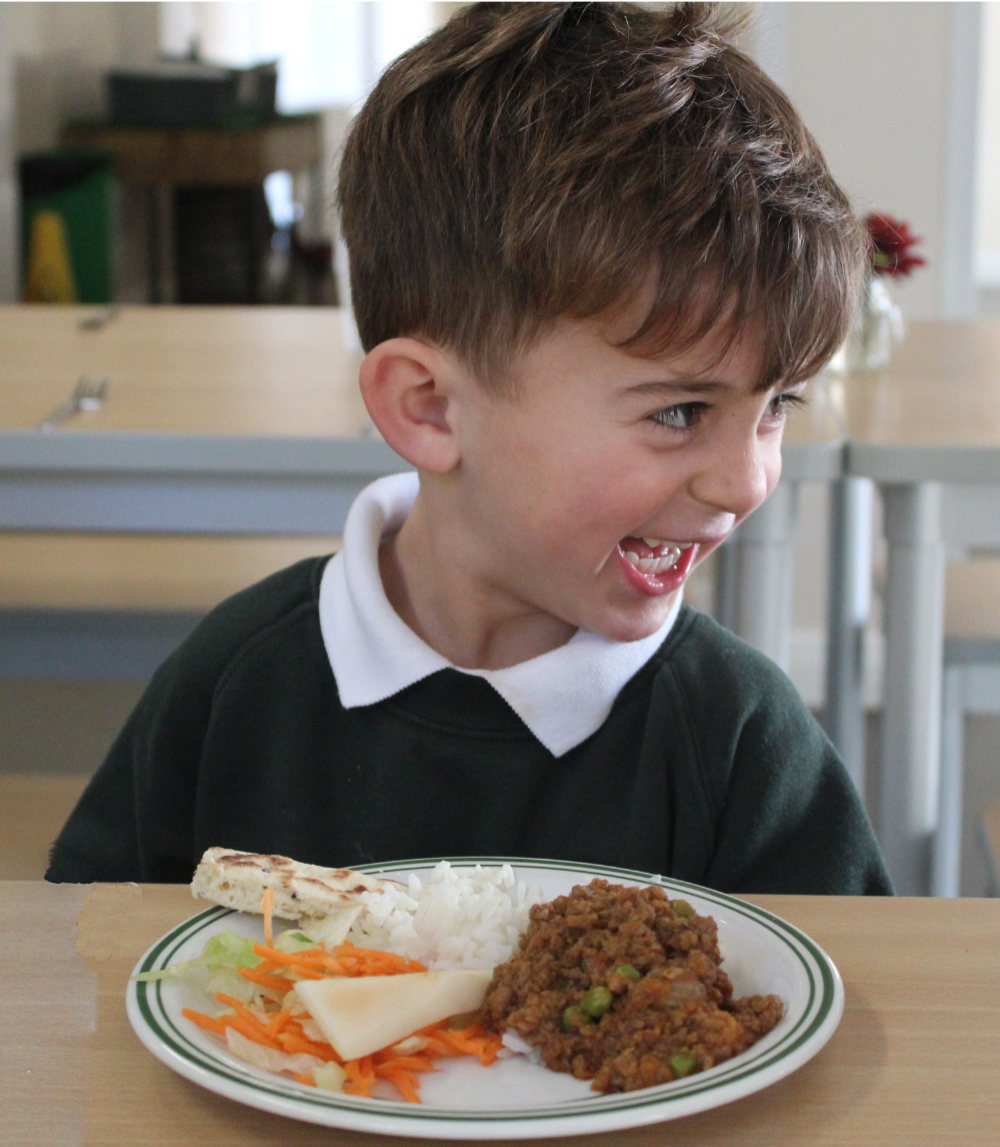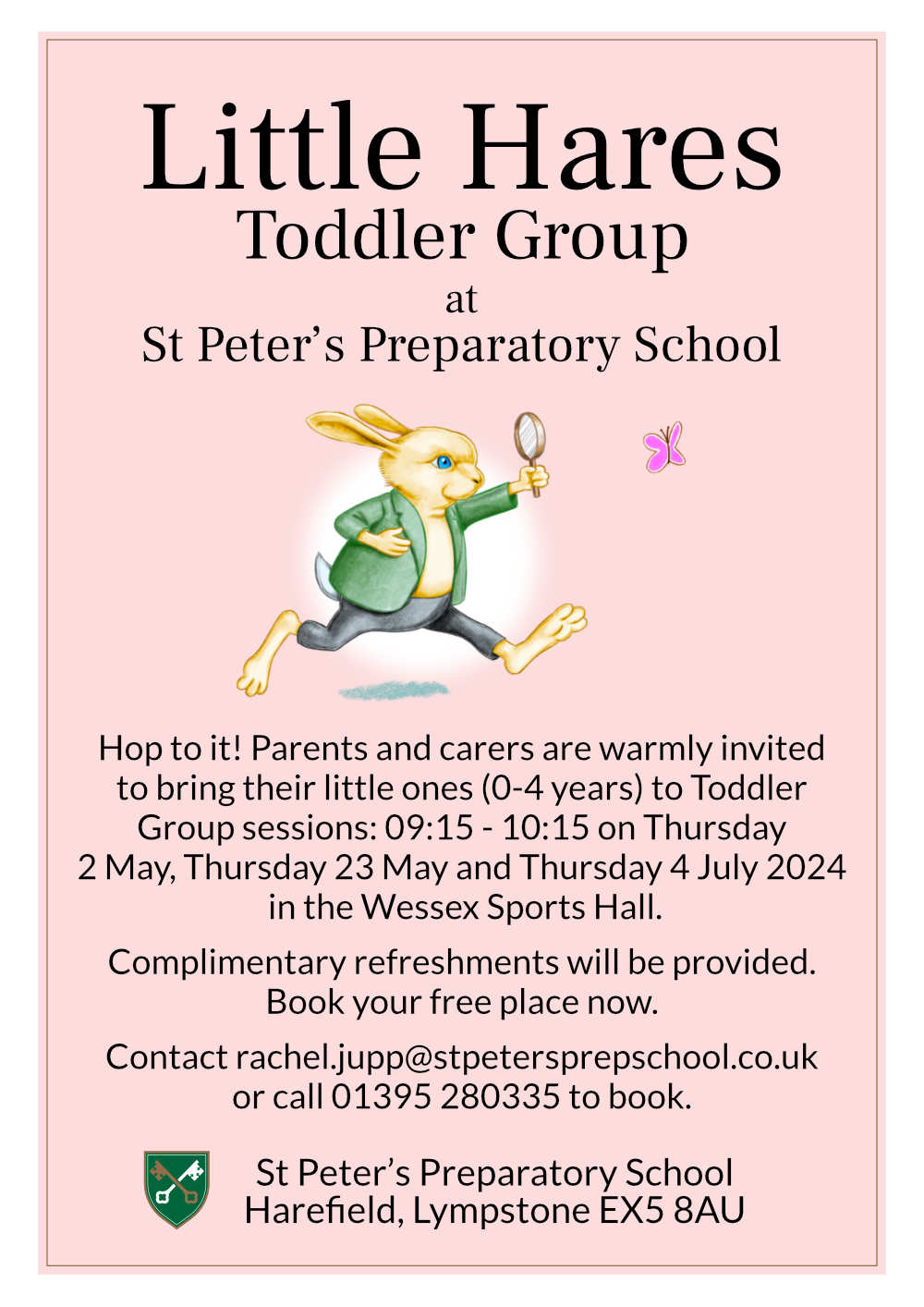Last week I wrote about how we started Beach School back in 2015 and I shared with you some of the benefits that we have made sure our children experience throughout their time with us at St Peter’s. Now in 2018 we feel this is an embedded part of our St Peter’s School Baccalaureate® curriculum – especially for our Early Years pupils.
So this week, to end our Lent term, I am going to share with you some information about one of our newest endeavours. Mindfulness.
Welcomed to the activity programme in 2016 (thank you very much Mrs Saltmarsh) and rolled out in target classes across 2017 – it is a fascinating subject. ‘Mindfulness’ is a term that is in grave danger of being overused and misinterpreted. It is exciting when a full understanding of its benefits for children and their learning is discovered and realised.
 This week Mrs Johnston and I asked Mrs Hughes if we could watch one of her more formal Paws B mindfulness teaching sessions (not just some useful, daily mindfulness practises). We were both keen to learn more. We wanted to truly understand the reasons for supporting its full implementation, not a surface glance, but a real grasp of what it can do for our pupils. We entered an exquisite learning environment, with amazing children and committed staff. Magic was in the air during the lesson. We saw focused minds, that were sharing experiences and solutions to problems, in an open and supportive environment. Who knew our kids worried so much about the funniest things?
This week Mrs Johnston and I asked Mrs Hughes if we could watch one of her more formal Paws B mindfulness teaching sessions (not just some useful, daily mindfulness practises). We were both keen to learn more. We wanted to truly understand the reasons for supporting its full implementation, not a surface glance, but a real grasp of what it can do for our pupils. We entered an exquisite learning environment, with amazing children and committed staff. Magic was in the air during the lesson. We saw focused minds, that were sharing experiences and solutions to problems, in an open and supportive environment. Who knew our kids worried so much about the funniest things?
Well, all you parents know this, of course.
But sometimes we as teachers can forget – it is the small things that build up to a bigger concern. We all KNOW happy children make the best progress.
We want to be mindful at St Peter’s of the world in which childhood is now being lived. Childhood, that we imagine (and we hope) is the land of the present, untroubled by past regrets and worries for the future. We would be wrong to think that this is always the case.
We must teach our children more than ever to communicate well. This was demonstrated by the pupils that we observed this week. See the quotes below:
 “ When I feel nervous I know that I can take a few deep breaths and get ready to do my best. I should be gentle with myself”
“ When I feel nervous I know that I can take a few deep breaths and get ready to do my best. I should be gentle with myself”
“I know that if I practise something and really concentrate on it- I will get better at it. I can shine a torchlight onto what I need to focus on – it is easy now I have done it for a while.”
When asked about their prep practices of mindfulness exercises one pupil told us “I did a Paws B before I went swimming. It helped me not to worry, but just to enjoy it”
“Sometimes my mind wanders, but now I know how to bring it back”
“My Prefrontal Cortex is telling me I am cross because I fell out with someone during playtime. My Hippocampus is telling me that this has happened to me before and everything will be OK once I have spoken to the person involved”
Mrs Johnston and Mrs Ball left Mrs Hughes’ lesson feeling emotional, proud, excited and certainly more clued in to how we are going to be able to have a big impact on a vast number of children by threading this new lesson addition through our curriculum. Never more convinced that Mindfulness must be on our curriculum and never more clear on how we could do this with clever timetabling and without losing academic time.
Why bother? Well, please read on…
 I reported earlier in the year that Mrs Hughes has passed her latest mindfulness course and is now trained to teach the ‘paws b’ and ‘.b’ curriculum. Her story goes a little like this …
I reported earlier in the year that Mrs Hughes has passed her latest mindfulness course and is now trained to teach the ‘paws b’ and ‘.b’ curriculum. Her story goes a little like this …
In 2012 whilst working at St. John’s College School in Cambridge, Mrs Hughes was asked to attend an 8-week mindfulness course. The timing wasn’t great, it took place every Tuesday evening between 5:30- 7:30 pm, she had two children under the age of 2 and had only recently moved to the area.
“I remember in the first session being asked to lie down. I lay there thinking of all the things I should be doing and how ridiculous it was that I was lying down doing nothing. By week 2, I decided as there was no choice; to embrace it and try to enjoy it. I haven’t looked back since; it was undoubtedly the best thing I have ever been ‘made’ to do! The course has been life changing!”
The benefits were not only felt in her own life, but it was amazing the impact it had in the classroom. Children were understanding how to place their attention into the present moment, recognising that their thoughts were not facts, that it was normal to worry and that you can feel worry physically as well as mentally. Most importantly children had practical ways and strategies to try and help themselves.
 The ‘Paws b’ Mindfulness programme, which stands for ‘Pause, Breathe and Be’, is designed for the younger age group. We are rolling it out in Year 3, giving children practical techniques and guiding them through the programme. The trial is proving to be a huge success and we shall be continuing its roll out into next year and beyond. This will happen alongside introductions of philosophy for children and more work on critical thinking and growth mindset.
The ‘Paws b’ Mindfulness programme, which stands for ‘Pause, Breathe and Be’, is designed for the younger age group. We are rolling it out in Year 3, giving children practical techniques and guiding them through the programme. The trial is proving to be a huge success and we shall be continuing its roll out into next year and beyond. This will happen alongside introductions of philosophy for children and more work on critical thinking and growth mindset.
Just like the driving force of Mrs Sarah Brenton behind Beach School, Mrs Hughes has been the most inspiring and dedicated advocate for Mindfulness.
She says:- “We want our children to be where they belong, in the present moment. Mindfulness supports, in a highly practical way, the children’s emotional development, teaching them to recognise and regulate their emotions. It focuses on teaching children about the different parts of their brains and the role these play in how they experience the events that happen in their lives. ‘Paws b’ also teaches some Mindful practices which support attention and concentration and can be used as a calming tool in times of difficulty or as a way of noticing when things are going well. Some of the ‘Paws b’ sessions include topics such as: dealing with difficulty; the storytelling mind; growing happiness; brain training; steadying a ‘wobble’. The children will also learn about the parts of the brain such as the prefrontal cortex, amygdala, hippocampus and insula and how these parts of the brain work together to help us concentrate, focus, stay calm and make good choices.”
She goes on to add:- “In .b, the older programme of work, children will be able to explore; playing attention, taming the animal mind, recognising worry, Learning how to respond rather than react, moving mindfully, stepping back, befriending the difficult and taking in the good. We are providing children with skills that they can use throughout their life. Ready to face any challenges that happen to lie ahead whilst feeling happier.”
Lucky children.
By having teachers who first and foremost, care and are then inspirational in their delivery and thinking of what children can achieve and succeed.

So, what is Mindfulness?
Mindfulness is all about learning to direct our attention to our experience as it unfolds, moment by moment, with open-minded curiosity and acceptance. Rather than worrying about what has happened or might happen, it trains us to respond skilfully to whatever is happening right now, be that good or bad.
Brain imaging studies show that mindfulness practice alters the structure and function of the brain in ways that appear to be linked to improved concentration, mood regulation and ability to choose appropriate responses, as well as improved immune function.
In adults, mindfulness training has been shown to improve health and wellbeing. People of all ages report after taking a mindfulness course that they are able to learn more effectively, think more clearly, perform better and they feel calmer, less anxious and less depressed. Mindfulness is now recommended by the National Institute of Clinical Excellence and GPs are referring adults on 8-week courses to reduce stress and help prevent recurrent depression. It is increasingly being used in business to improve staff wellbeing and satisfaction, in sports training to improve performance, and with children and young people and in schools to enhance wellbeing and learning.
Mindfulness is always learned in a highly practical way, through experience rather than talk. We gradually learn to direct our attention in a more focused way to whatever is actually happening – whether it be our breathing, the sensations in our body, thoughts and feelings, or everyday activities such as walking and eating. At first, the mind wanders constantly, but with practice, we learn to sustain our attention and direct it more skilfully. This helps break the grip of unhelpful mental habits, judgements and impulses, making way for greater calm, and for more helpful, kinder and rational thinking about all aspects of life. However, it takes practice!
As you know we always aim to achieve excellence at St Peter’s, but we do not want our children to feel any unnecessary anxiety (parents either)!!! By supporting mindfulness in school we can give our children the vital tools to protect their mental wellbeing at the same time as them achieving their potential and being the very best that they can be.In today’s world, we are preparing children for jobs that do not yet exist, using technologies that have not yet been invented, in order to solve problems we don’t even know are problems yet. A good education today therefore needs to teach children learning skills, attitudes and dispositions that will enable them to flourish in a quickly changing landscape. This is where mindfulness comes in.As Professor Katherine Weare observed in her award winning research, Evidence for the impact of mindfulness on children and young people.‘Schools who engage in this are likely to see beneficial results on the emotional well being, mental health, ability to learn and even the physical health of their pupils.’Why wouldn’t we offer our pupils the opportunities to gain these life skills?Mrs Hughes has seen this first hand with children that she has worked with and is determined and committed to see this embedded at St. Peter’s. Adult classes may be running soon …
| “The faculty of voluntarily bringing back a wandering attention,over and over again, is the very root of judgment, character and will. No one is compos sui (master of himself) if he have it not.” |
| “An education which should improve this faculty (of attention) would be the education par excellence. But it is easier to define this ideal than to give practical directions for bringing it about.” William James 1890 |
As you know we always aim to achieve excellence at St Peter’s, but we do not want our children to feel any unnecessary anxiety (parents either)!!! By supporting mindfulness in school we can give our children the vital tools to protect their mental wellbeing at the same time as them achieving their potential and being the very best that they can be.
In today’s world, we are preparing children for jobs that do not yet exist, using technologies that have not yet been invented, in order to solve problems we don’t even know are problems yet. A good education today therefore needs to teach children learning skills, attitudes and dispositions that will enable them to flourish in a quickly changing landscape. This is where mindfulness comes in.
As Professor Katherine Weare observed in her award winning research, Evidence for the impact of mindfulness on children and young people:
‘Schools who engage in this are likely to see beneficial results on the emotional well being, mental health, ability to learn and even the physical health of their pupils.’
Why wouldn’t we offer our pupils the opportunities to gain these life skills?
Mrs Hughes has seen this first hand with children that she has worked with and is determined and committed to see this embedded at St. Peter’s. Adult classes may be running soon…









